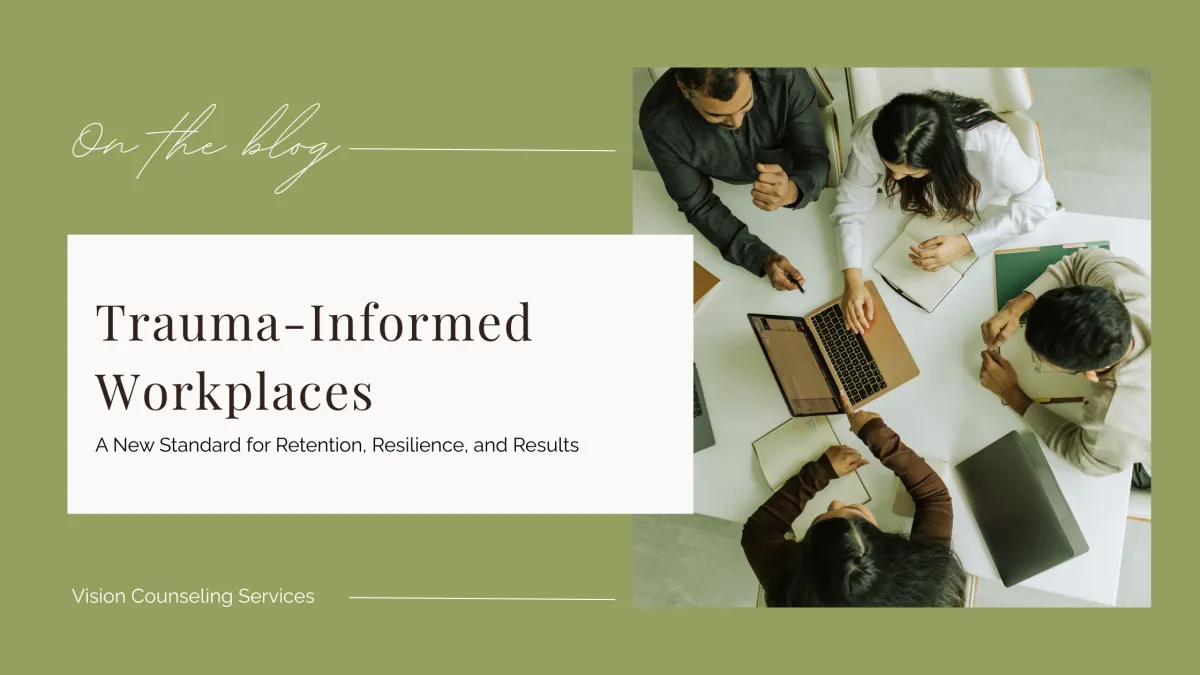
Trauma-Informed Workplaces: A New Standard for Retention, Resilience, and Results
When we understand the whole person, we unlock the whole team.
Trauma-informed Workplaces: A New Standard for Retention, Resilience and Results
By: Dr. Leslie Westbrook, LMFT

What Do We Mean by Trauma?
The truth is — unaddressed trauma shows up at work. Not just in the people we serve, but in the people we lead.
Trauma isn’t just about extreme events — it’s any deeply distressing experience that overwhelms a person’s ability to cope. This can come from a single incident, like an accident or sudden loss, or from ongoing experiences, like chronic stress, discrimination, or toxic relationships.
In the workplace, trauma may show up as:
Difficulty concentrating or making decisions
Heightened stress responses or burnout
Withdrawal, irritability, or emotional exhaustion
Distrust in leadership or teammates
What if we stopped asking employees to “leave it at the door” and started creating workplaces where they don’t have to hide who they are to survive?
What Does “Trauma-Informed” Mean?
Being trauma-informed means recognizing that people carry experiences that shape how they show up — and creating systems, policies, and cultures that don’t add to that burden. It’s not about treating trauma in the workplace, but about leading with awareness, empathy, and intention.
A trauma-informed workplace is built on these principles:
Safety → People feel physically and emotionally secure.
Trust → Leaders are transparent, consistent, and reliable.
Choice → Employees have a voice in how they work.
Collaboration → Teams value partnership over hierarchy.
Empowerment → Strengths are recognized and developed.
Being trauma-informed isn’t just for therapists. It’s a leadership framework. It’s a culture shift. It’s a competitive advantage.
✔️ It reduces turnover. ✔️ It boosts team trust. ✔️ It helps people bounce back faster, not burn out.
As a psychologist and consultant, I help organizations build systems that heal — not harm.
If you’re leading a team, department, or company that wants to retain talent and foster resilience, it’s time to think trauma-informed.
Because when we understand the whole person, we unlock the whole team.
